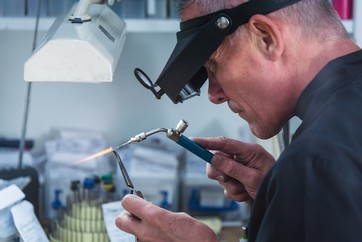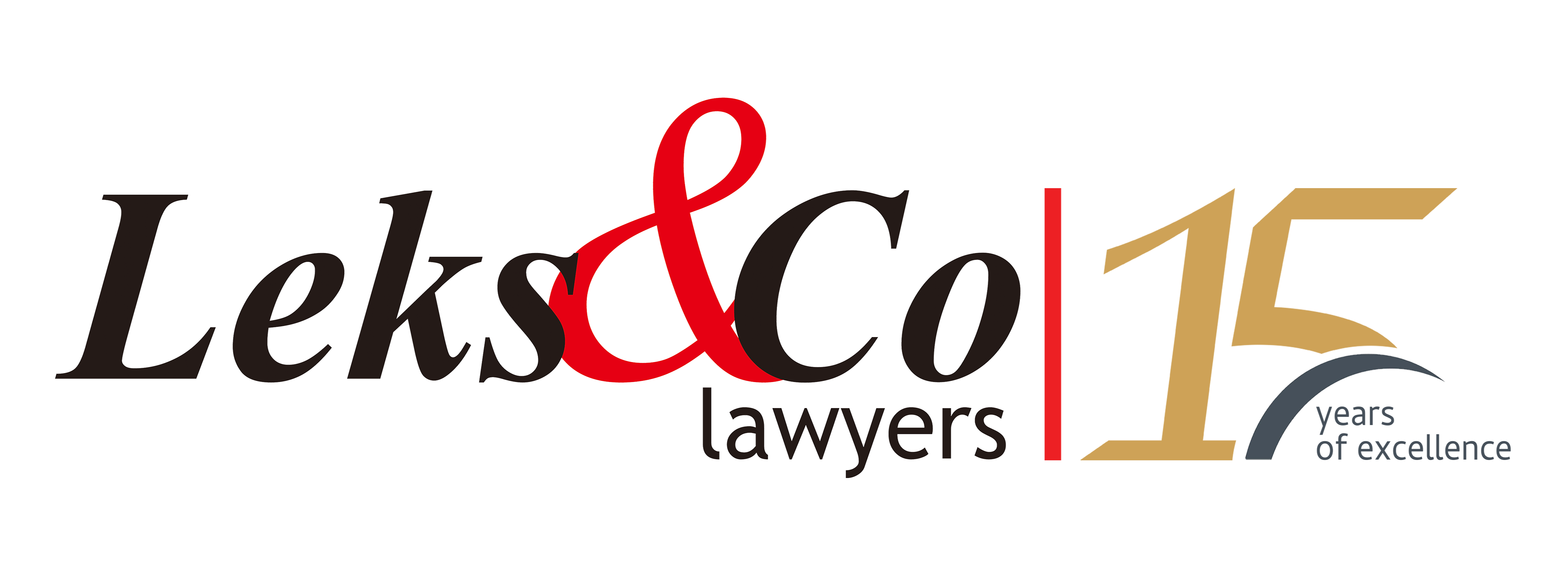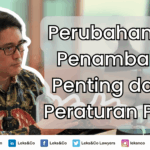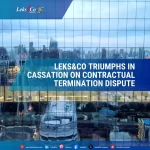 The Indonesia new patent law, namely Law No. 13 of 2016 on Patent (“Patent Law 2016”), was promulgated on 26 August 2016. The New Patent Law is expected to increase the protection of patent in order to motivate inventors for making inventions. Since Independence Day of 1945, Indonesia has promulgated three patent laws, i.e. (i) Law No. 6 of 1989, as amended by Law No. 13 of 1997, (ii) Law No. 14 of 2001, and (iii) the Patent Law 2016.
The Indonesia new patent law, namely Law No. 13 of 2016 on Patent (“Patent Law 2016”), was promulgated on 26 August 2016. The New Patent Law is expected to increase the protection of patent in order to motivate inventors for making inventions. Since Independence Day of 1945, Indonesia has promulgated three patent laws, i.e. (i) Law No. 6 of 1989, as amended by Law No. 13 of 1997, (ii) Law No. 14 of 2001, and (iii) the Patent Law 2016.
The Patent Law 2016 revokes the previous patent law which was regulated under Law No. 14 of 2001 on Patent. To see what differentiates the Patent Law 2016 from the old patent law, we have summarized the important new features in the Patent Law 2016.
Electronic Filing and Electronic Media
The application of patent and excerpt of decision on granting of the compulsory license can be filed electronically. Further, the Patent Law 2016 is also permitted the record and announcement related to patent application through electronic media.
Intangible Inventions
The simple patent can be granted for intangible inventions, in the form of new process or method. In the old patent law, the simple patent is only limited to the tangible inventions.
Exclusion from Inventions
Invention does not cover a discovery in the form of (a) new use of existing and/or known products, and/or (b) new form of existing compound that is not resulting a significant increase in efficacy, and there are differences on related chemical structures that have already known from the compound. Further, invention is not also covering rules and modes that only contain computer program. The computer program is patentable if it contains character (instructions) that has technical effect and function to solve problems.
Compensation of Patent for Civil Servants as Inventor
The inventor that is working as civil servants is entitled to receive compensation of patent from the non-state tax revenue, after the patent has been commercially exploited. The inventor may also exploit the patent through a third party and obtain its royalty, provided that the inventor has obtained prior approval from the government.
Disclosure of Genetic Resources and Traditional Knowledges
The invention that is related to genetic resources and/or derived from the traditional knowledges, shall clearly specify the origin of the genetic resources and/or knowledge of the traditional knowledge in the description of patent. This provision is stipulated in order to support the access benefit sharing.
Announcement of Invention in Educational Institutions or Research Institutes
The invention is not deemed to be announced if the invention has been published by an inventor in (a) scientific session in the form of test and/or examination of thesis, dissertation, or other scientific work, and (b) other scientific forum for discussions on the results of research in educational institutions or research institutes, within 6 months prior to its filing date.
Parallel Import and Bolar Provisions
The pharmaceutical product that is legally marketed in another country and patented in Indonesia can be imported without the permission of patent holder (parallel import), provided that the product is imported according to the prevailing laws and regulations. The Patent Law 2016 extends the period of bolar provision, from 2 years to 5 years. The patented pharmaceutical product can be produced by other party within 5 years before the expiry of patent protection, provided that the manufacturing is made for the purpose of licensing and marketing after the patent protection is expired.
Obligations to Manufacture Patented Products and Use Patented Process in Indonesia
The patent holder is entitled to manufacture its patented product or use patented process in Indonesia. The Patent Law 2016 does not clearly stipulate the time limit when the patent holder is obliged to manufacture or use its patent during the period of patent protection. The Patent Law 2016 however regulates that a third party may file an application of compulsory license towards the patent if the patent holder does not manufacture the patented product or use the patent process within 36 months after the granting of patent.
Reasons to Grant Compulsory Licenses
The compulsory license can be granted based on the following reasons:
- the patent holder does not manufacture the patented product or use the patent process within 36 months after the granting of patent;
- the patent is implemented in the form or manner that is detrimental to the interest of society;
- the patent is the result of improvement of prior patent that cannot be implemented without using another patented invention.
Extension of Appeal Commission’s Authorities
In the Patent Law 2016, the Appeal Commission is authorized to receive, examine and decide appeal application in relation to:
- the rejection of patent application;
- the correction of description, claim, and/or drawing after the granting of patent; and
- decision on granting of patent.
Initial Payment of Maintenance Fees
The initial payment of maintenance fees shall be paid at the latest 6 months from the issuance of patent certificate. Failure to pay the maintenance fees may result the patent to be deemed null and void.
Other Provisions in the Patent Law 2016
Other than the important new features as mentioned above, herewith are other important provisions in the Patent Law 2016, among others:
- the parties shall first settle the patent infringement dispute through a mediation before lodging any criminal report;
- patent can be used as an object of fiduciary security;
- the Minister of Law and Human Right may engage independent experts as patent examiner to conduct the substantive examination;
- the substantive examination of patent application is shortened to be 30 months, and for the simple patent is shortened to be 12 months.
Author : Ivor Ignasio Pasaribu







